Homelessness Discussion: HB 695 Survey Analysis and Insights
VerifiedAdded on 2022/11/14
|5
|895
|128
Discussion Board Post
AI Summary
This discussion board post analyzes the factors contributing to homelessness through the lens of the Social Ecological Model, examining individual, interpersonal, and community influences. The author categorizes potential contributors like mental illness, substance abuse, poverty, and housing costs, drawing upon survey results and academic sources. The post explores the perceived major sources of influence according to survey samples, highlighting the significance of community factors such as poverty and lack of affordable housing. The author reflects on these findings, comparing them with their own perceptions and acknowledging additional interpersonal causes, such as mental health and social isolation, while emphasizing the need for government intervention to support homeless individuals. The analysis integrates survey data, research findings, and personal reflections to provide a comprehensive understanding of homelessness.
1 out of 5
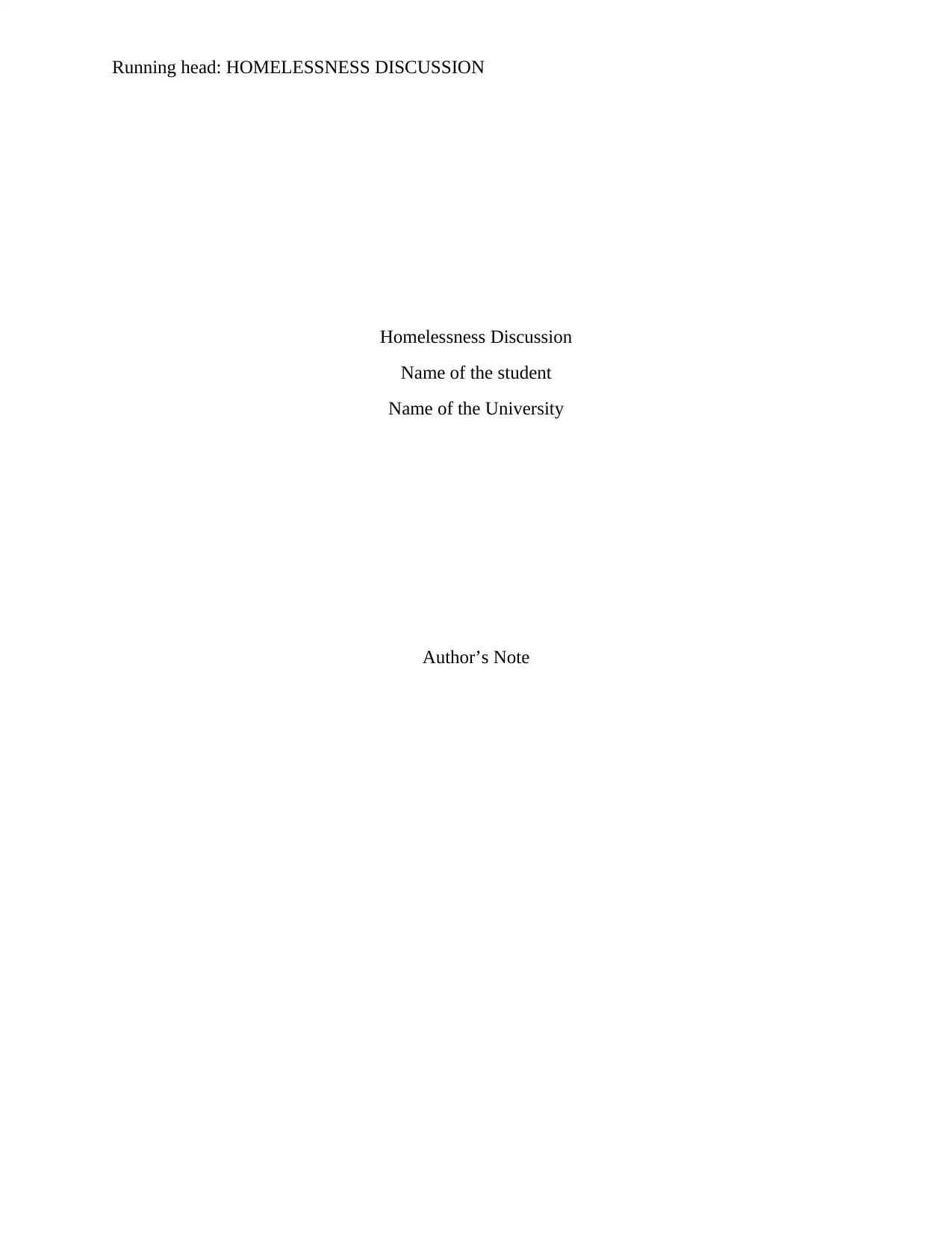
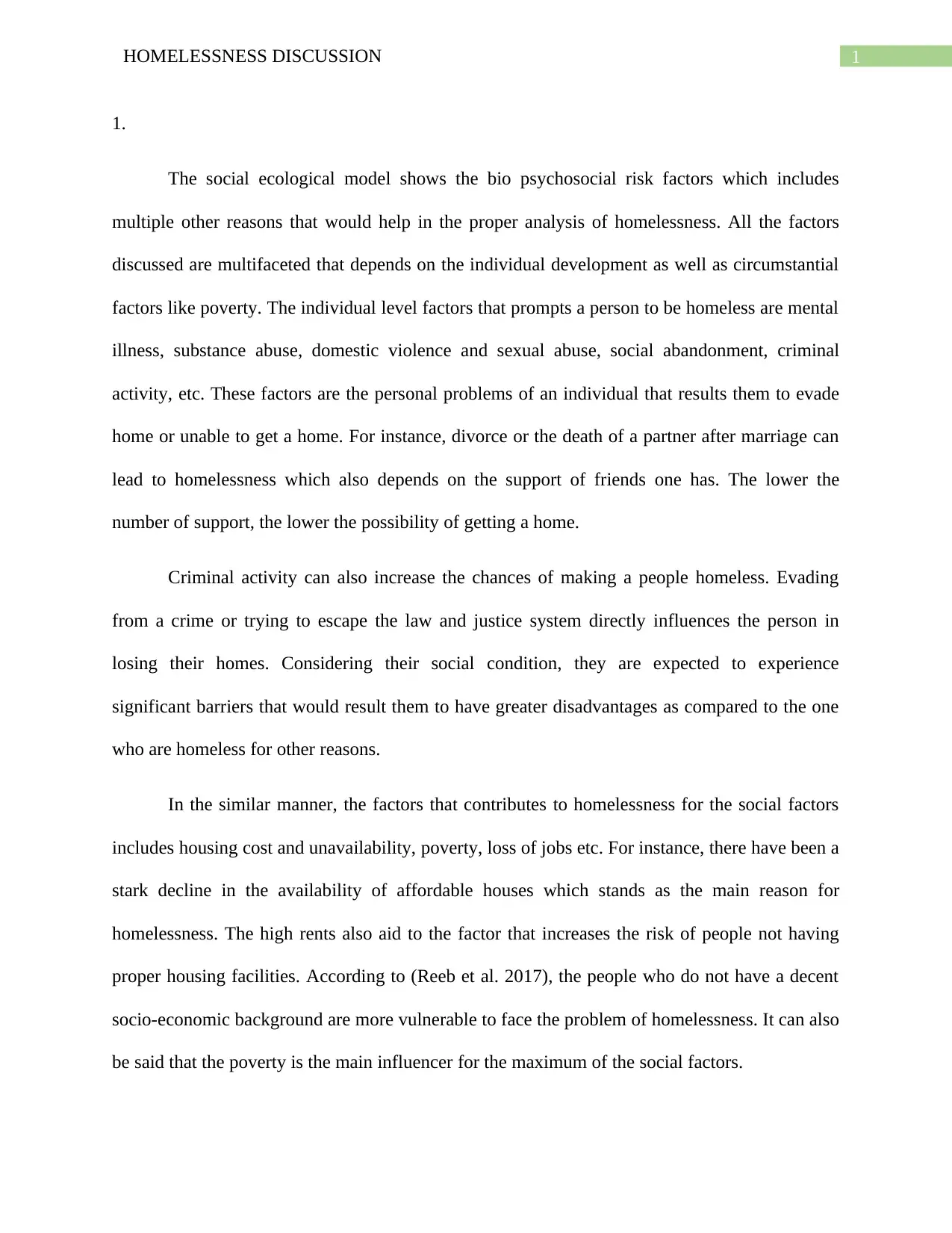
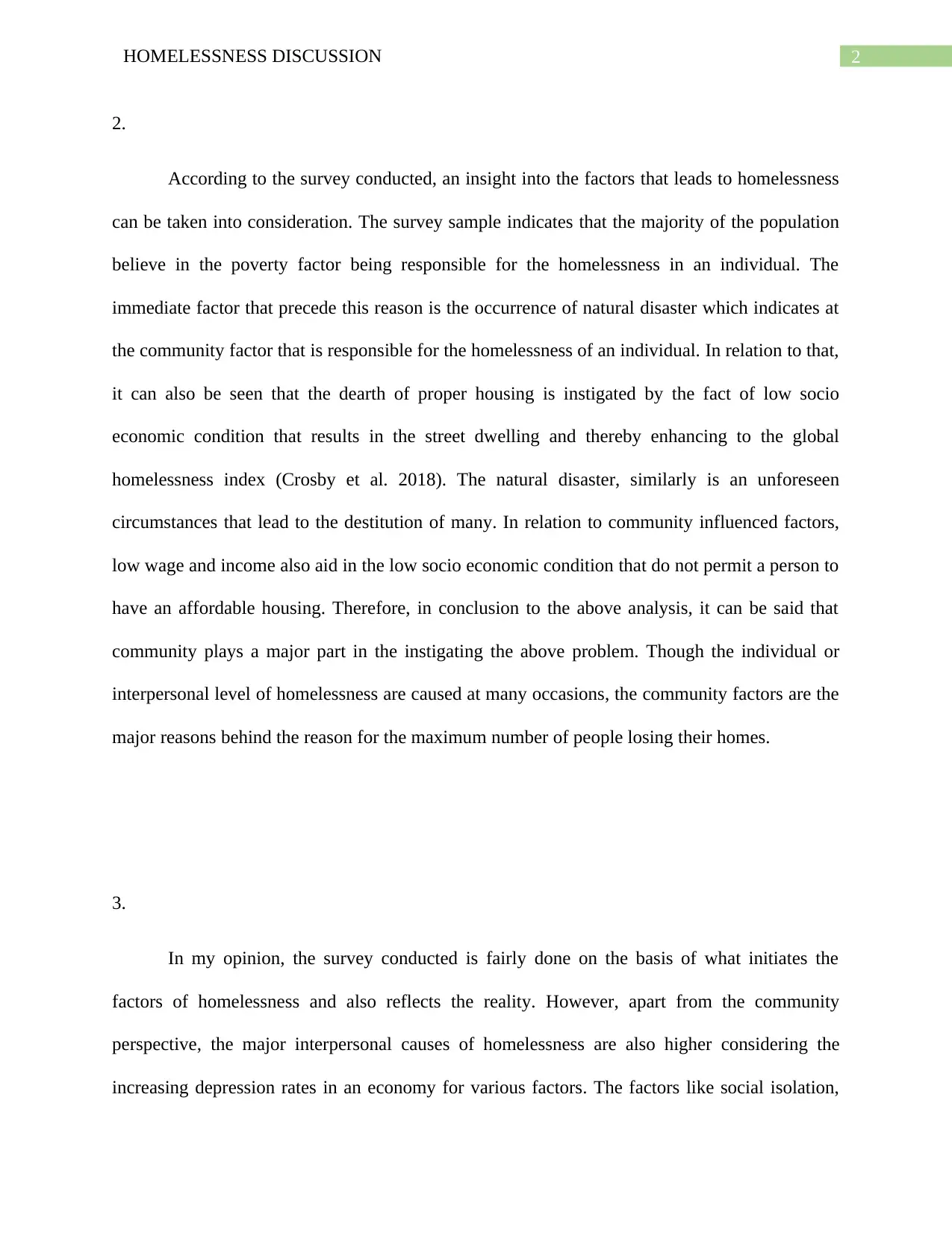

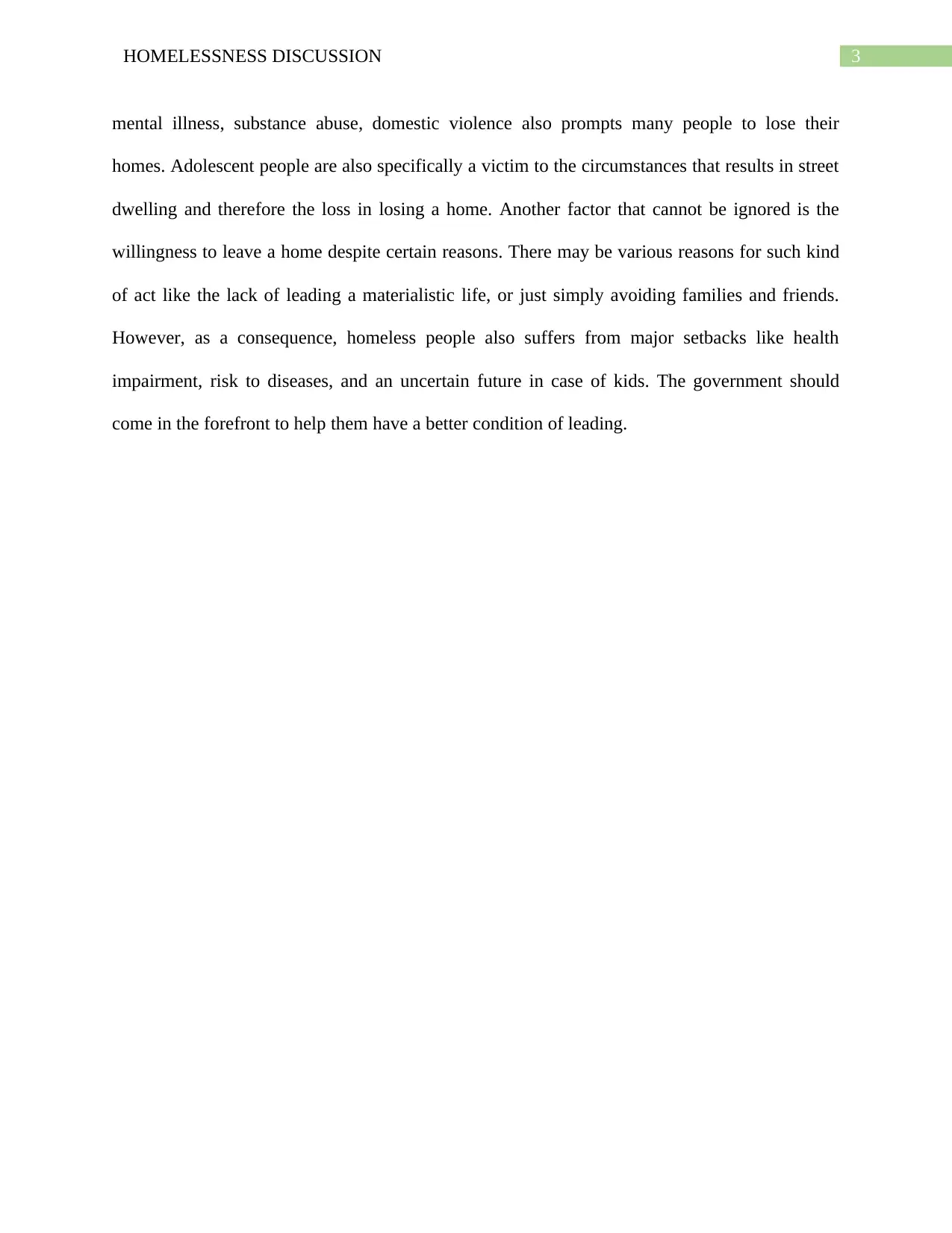
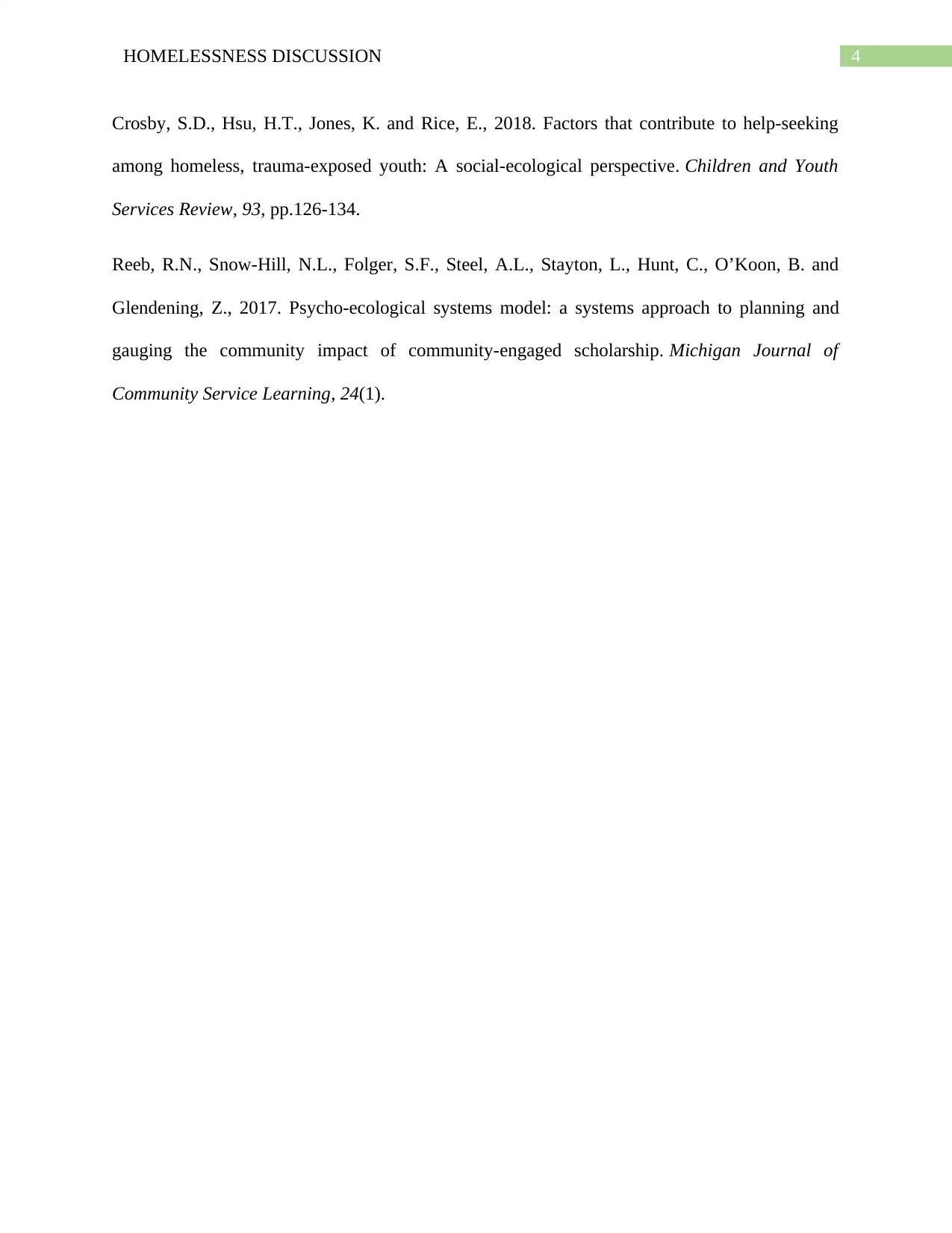






![[object Object]](/_next/static/media/star-bottom.7253800d.svg)